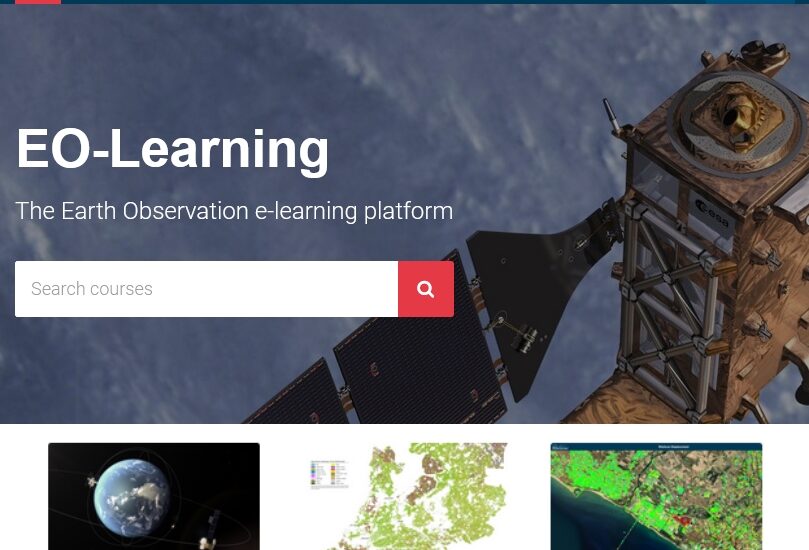- March 21, 2022
- Posted by: EARSC
- Category: Members News

EO-Learning is the new e-learning platform with free courses and resources on Earth Observation launched by Planetek Italia.
A new opportunity for students, and professionals in private and public entities (engineers, geologist, planners, etc.) to learn and stay up to date on technologies, methodologies and applications of satellite Earth Observation.
Earth observation plays an increasingly important role in many sectors and applications: territorial and urban planning, monitoring ground motion phenomena, predicting infrastructure stability risks, sustainable use of resources, natural disaster prevention, and so forth.
The huge information acquired by satellites or UAVs can help decision-making and operational activities with reliable, continuous and measurable information, essential for professionals.
“EO-Learning blossoms from Planetek’s desire to add further value to its thirty years of experience in the sector and from its commitment as a Benefit Company to make this knowledge available to the user community”, says Vincenzo Barbieri, CMO and founding member of Planetek Italia. “The Space sector is growing rapidly and its applications are increasing and strategic in various sectors. As part of the Planetek Academy project, EO-Learning aims to contribute to the skills improvement of professionals in this field to let them support better public and private organizations”.
Get started with EO-Learning
EO-Learning offers standard and premium courses in English and Italian languages. Once enrolled in the platform, users will autonomously access courses organized in 15-minute lessons, and practice with evaluation tests. A friendly dashboard allows users to keep track of their progress.
Who is the course for?
Everyone can access. Students and graduates interested in specializing in Earth Observation; professionals working in sectors that can benefit from geoinformation and need to add further capacity to decision-making and operational activities, such as engineering, utilities and energy, urban planning, land management, environmental and resource protection, or natural disaster mitigation.
Learn more:
